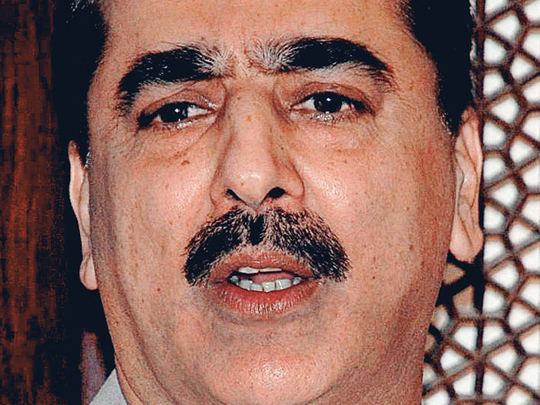
Islamabad: Prime Minister Yousuf Raza Gilani on Sunday accepted a ten-point national reforms agenda proposed by the main opposition Pakistan Muslim League-N, a day before the expiry of a deadline that was set by PML-N chief Nawaz Sharif for a "Yes or No" response by the government.
Gilani telephoned Sharif and conveyed a "positive response" to him regarding the agenda, said a statement from the Prime Minister's House, adding that the PML-N chief appreciated the "political foresight and acumen" of the prime minister.
Sharif had unveiled the agenda on January 4 after a high-level party meeting, asking the government to agree to its implementation and promising opposition help in the task to steer the country through the multiple crises engulfing it.
PML-N chief spokesman Ahsan Iqbal expressed satisfaction after Gilani's phone conversation with Sharif.
"We have been told that the agenda is acceptable and hope that there would be visible, substantial progress on its implementation within a 45-day span as suggested by the PML-N," the spokesman said.
A three-member PML-N committee headed by Senator Ishaq Dar, a former finance minster, would get in touch with the government for deliberations regarding the implementation of the agenda, Iqbal said.
The first demand on the agenda was no longer operative after Gilani on Friday revoked the latest hike in petroleum product prices during a visit to the MQM headquarters in Karachi that brought the party back into the coalition.
Some of the other points on the agenda were:
- Removal of corruption-tainted ministers, bureaucrats and heads of autonomous bodies and corporations and their replacement with competent and capable persons;
- Downsizing of the federal cabinet;
- The establishment of an independent accountability commission and re-constitution of the Election Commission to make it independent and impartial;
- At least 30 per cent cut in government's expenditure and measures to reduce essential commodities' prices;
- The implementation of judicial verdicts including the Supreme Court judgment on National Reconciliation Ordinance (NRO);
- Prosecution of all those involved in sugar and Agosta-submarine scams;
- Launching of probes into embezzlement and fraud in institutions such as the National Logistics Cell.












